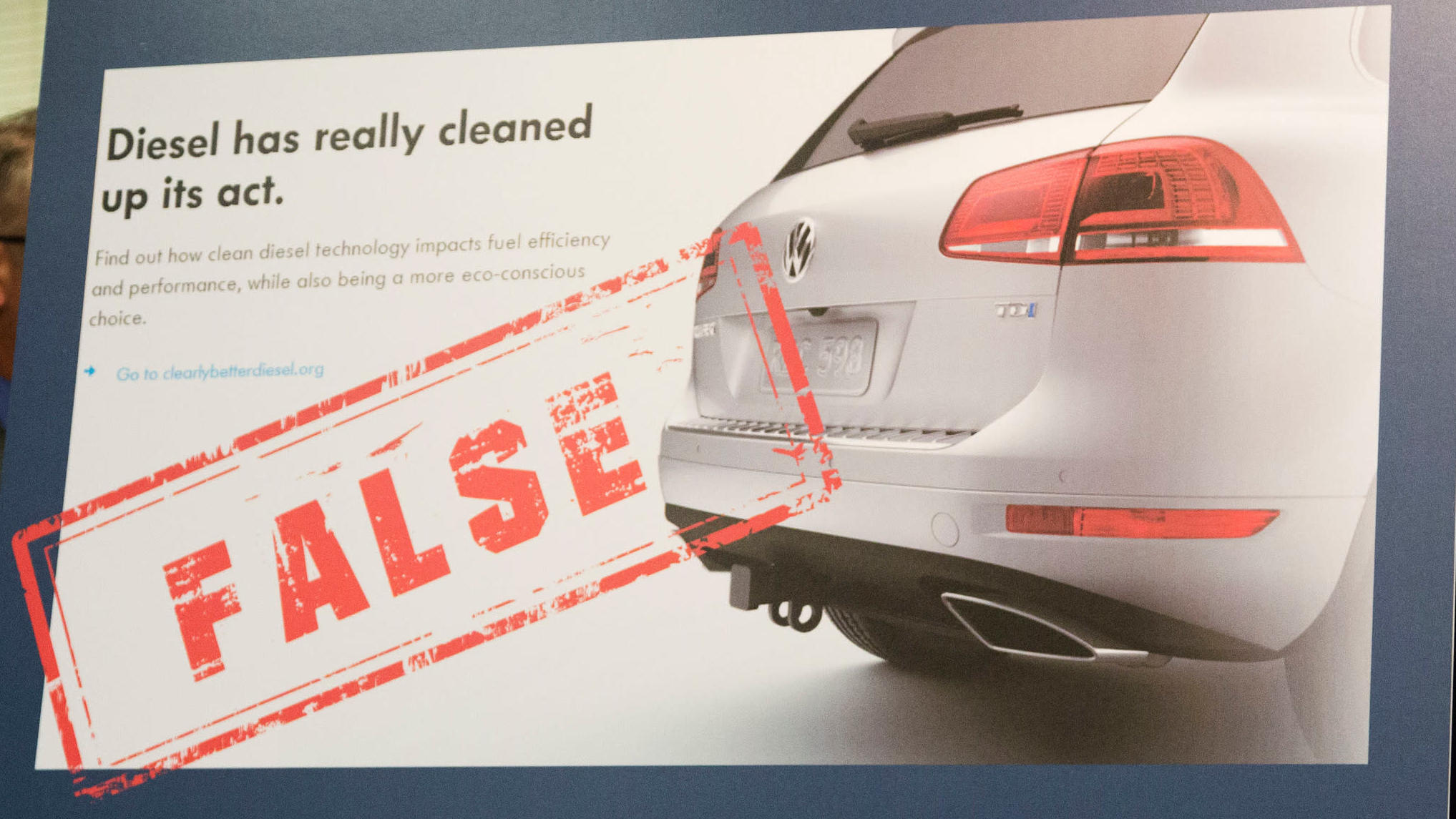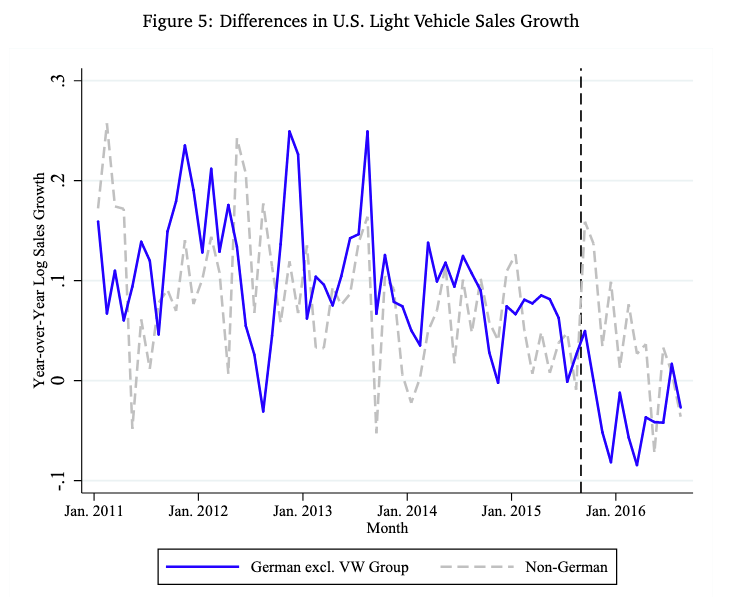VW's Emissions Scandal Cost Other German Automakers $5.2 Billion In U.S. Sales: Study
German cars have a reputation for precision and attention to detail. But only four years ago, they gained another reputation—as liars and cheaters when it came to emissions. It was all thanks to Volkswagen's diesel cheating mess, and it cost not just Volkswagen, but all German automakers, billions of dollars.
According to a new working paper from economists at the University of Michigan and the University of Notre Dame and published by the National Bureau of Economic Research, Americans not only bought fewer VWs in the wake of the cheating scandal, but they bought fewer BMWs, Mercedes-Benzes, and Smarts too.
Overall, researchers found the emissions scandal cost non-VW Group German automakers $5.2 billion in decreased U.S. sales relative to what they might have expected without the scandal.
Generally speaking, some of the hit can be explained by the fact that the German companies went bigger on diesel in the U.S. than other automakers. But it's deeper than that. All the German automakers suffered because of what the researchers call "collective reputation externalities."
In other words, people have biases about German cars as a whole—just as they often do about American cars, Japanese cars, and so on—so a major scandal about one German automaker will affect all of them.
Until the cheating scandal, these biases tended to be positive, so car companies played up the fact that they're German in advertisements and marketing materials. In 2014, for example, Volkswagen aired a commercial, as quoted by the researchers, that stated, "Everyone knows that the best cars in the world come from Germany." Hell, Volkswagen's slogan was "Das Auto" for eight years until they changed it after the scandal broke.
Sales for non-VW Group German cars fell faster post-scandal than all other cars, the researchers found.
However, this isn't to say all of the reduced sales are because Americans suddenly believed "German cars bad." As the researchers themselves explain, there were (at least) two other factors at play. First, anyone who may have otherwise bought a VW looked to other manufacturers for their car buying needs, German and non-German alike.
The more diesel cars a company sold, the more it was affected, and German carmakers tended to sell more diesel cars. In the U.S., BMW, Mercedes and, yes, VW have all ended sales of their diesels after the scandal happened.
That being said, the paper does conclude "German cars bad" was the main element at play here, hence the approximately 105,000 fewer German cars sold in the U.S. than might have been otherwise expected sans-scandal.
After all, while VW was the most widespread and egregious when it came to diesel cheating, almost everyone was doing it to one degree or another. Daimler, Mercedes-Benz's parent company, was forced to recall three million vehicles to fix emissions in their own diesel engines. And earlier this year, BMW and Daimler were charged by the European Commission, along with Volkswagen, of colluding to block the rollout of clean emissions technology.
And it's not merely German automakers who do this type of thing. Fiat Chrysler paid $800 million to settle its own emissions scandal on diesel vehicles. And Ford is under criminal investigation by the U.S. Department of Justice over its emissions certification process, although the company has denied it relates to the use of any defeat devices.
What we're seeing globally is, probably, the beginning of the end for diesel passenger cars. And here in the U.S. at least, every German automaker paid the price for what happened.

